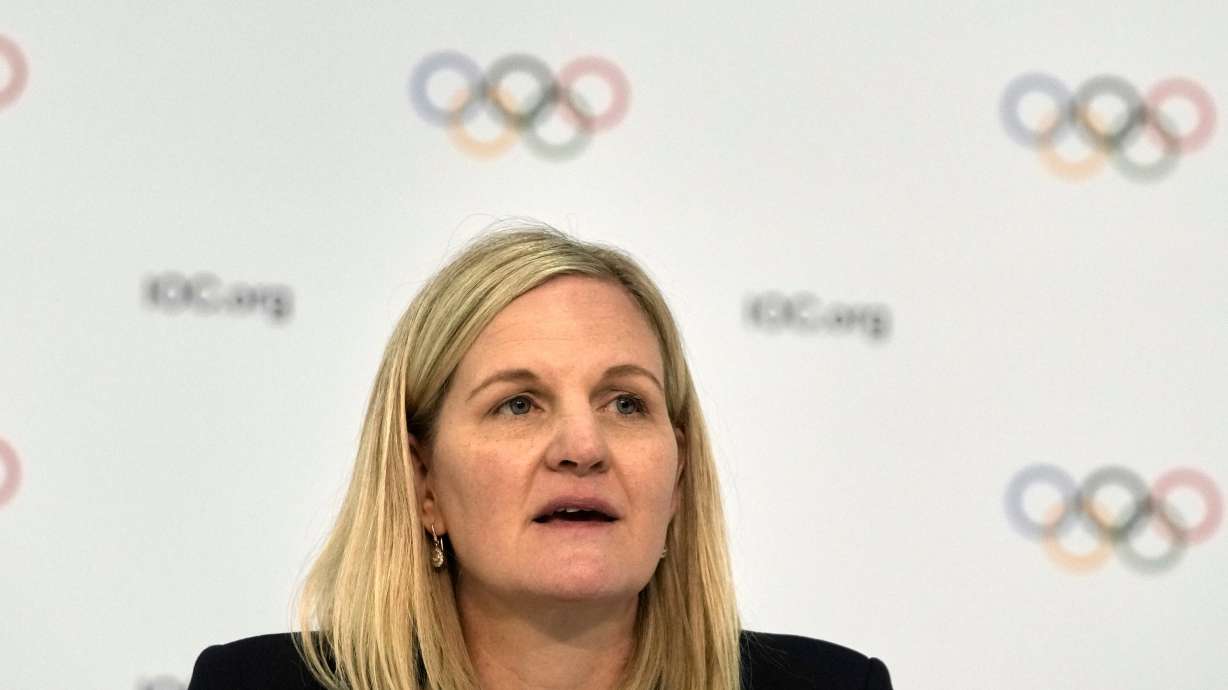Estimated read time: 4-5 minutes
- Kirsty Coventry, new International Olympic Committee president, faces decisions on Russia's Olympic participation.
- Russian officials hope Coventry's leadership will allow Russia's return to the Games.
- Coventry plans a task force to address conflicts affecting Olympic participation policies.
SALT LAKE CITY — Russian President Vladimir Putin was quick to send congratulations to the newly elected leader of the International Olympic Committee, Kirsty Coventry, of Zimbabwe, as Moscow pushes for a full-fledged return to the Games.
After Russia invaded Ukraine in 2022 with assistance from neighboring Belarus, the Olympic committee under its outgoing president, Thomas Bach, banned Russian and Belarusian athletes from international competition, calling the ongoing war a violation of the United Nations-backed Olympic Truce.
During the 2024 Summer Games in Paris, 32 Russians and Belarusians were allowed to compete as "individual neutral athletes" without their flags or other national symbols. The leaders of their countries were not invited to attend the Olympics.
What Russian leaders say about the new Olympic president
Now, with the Olympic committee's first woman and first African president set to take office in three months, Russian officials are anticipating that could change in time for the next Olympics, the 2026 Winter Games in Milan-Cortina, Italy, that begin next February.
"We expect that in the era of the new leader, the Olympic movement will become stronger, more independent and prosperous, and Russia will return to the Olympic podium," Russian Olympic Committee President and Sports Minister Mikhail Degtyarev posted in Russian on Telegram.
Degtyarev also said in the congratulatory post that Coventry's "brilliant sports career, Olympic victories, records and contribution to the development of sports have made her one of the favorites of this campaign," according to a translation.
Putin also piled on the compliments but was not as direct about Russia's expectations in his "greetings" to Coventry, at least in the portion made public. The Kremlin said in a news release that Putin's message reads, in part:
"The outcome of the vote attests to your high standing in the sporting world and recognition of your extraordinary personal achievements. I am confident that your unique expertise and commitment to advancing the noble Olympic ideals will contribute to success in this responsible position."
Coventry, an Olympic champion swimmer and the sports minister of Zimbabwe, defeated six other Olympic committee members vying to lead the powerful Switzerland-based sports organization in the first round of voting during last week's annual committee session.
Could there be a Russian team at the 2026 Winter Games?
A review of the current Olympic committee stance on Russian participation is likely coming through a new task force, the same approach she is taking to the controversial policy permitting transgender athletes deemed eligible by international sports federations to compete in the Olympics.
Asked last week after her election about Russia's potential return to international sport, Coventry told reporters she believes, "at the end of the day, we need to do anything and everything to support and protect athletes from all conflict areas."
She made it clear Ukraine is not the world's only war zone.
"We have numerous conflicts, and a number of them happening on my continent," she said, referring to Africa. "So again, we need to sit down as the Olympic movement and have a very serious conversation around how are we going to deal with more and more conflicts."
Later, Coventry said in an interview with Britain's Sky News that while she opposes banning countries from the Olympics, "you have to take each situation into account."
She said she wants to form a task force to try "to set out some policies and some guiding frameworks that we as the movement can use to make decisions when we are brought into conflicts."
Whether Russia could be reinstated by next year's Winter Games will be a topic for her new task force, Coventry told Sky News. "We're going to have that discussion with a collective group ... with the task force," she said.
Bach, the outgoing International Olympic Committee president, shrugged off a question about Putin weighing in on the outcome of the race. When Bach was first elected to the presidency a year before the 2014 Summer Games in Sochi, Russia, Putin was among the first to congratulate him.
"You cannot choose who is congratulating you when," Bach responded.
Coventry also heard from Belarusian President Alexander Lukashenko, who said he hoped she would contribute to strengthening "mutual understanding between nations and peoples and making sport accessible to all," Reuters reported.
The news service also reported that the head of Ukraine's National Olympic Committee, Vadym Guttsait, who had raised the threat of an Olympic boycott, said he wanted to see the International Olympic Committee under Coventry's leadership "continue the fight for peace, equality and inclusivity."









